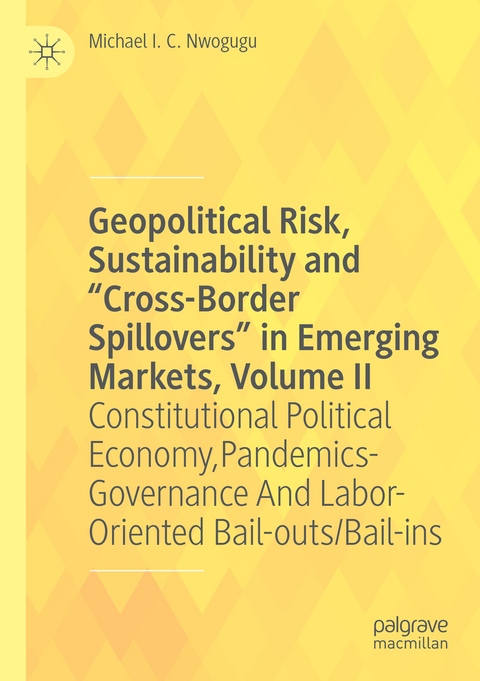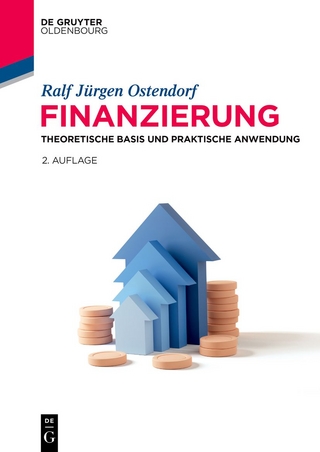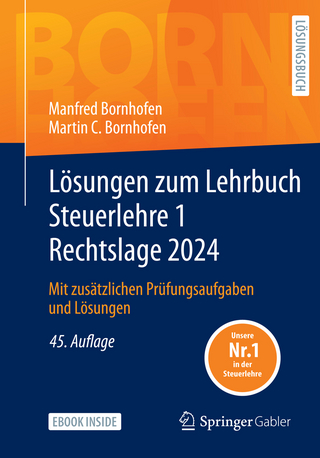
Geopolitical Risk, Sustainability and “Cross-Border Spillovers” in Emerging Markets, Volume II
Springer International Publishing (Verlag)
978-3-030-71421-5 (ISBN)
This second volume focuses on geopolitical risks that are intertwined with constitutional political economy and labor issues, alongside addressing some of the financial and constitutional crises that occurred in Europe, Asia and the U.S. during 2007-2020. This book provides analysis of complex systems and the preferences and reasoning of state/government and corporate actors in order to develop better artificial intelligence and decision-system models of geopolitical risk, public policy and international capital flows, all of which are increasingly important decision factors for investment managers, boards-of-directors and government officials.
Michael I. C. Nwogugu is an author, serial entrepreneur and consultant who has held senior management, Board of Director and Advisory Board Member positions in companies in the U.S., Barbados, France, India and Nigeria. Mr. Nwogugu has written eight books: Risk In the Global Real Estate Market (2012); Illegal File-sharing Networks, Digital Goods Pricing And Decision Analysis (2016); Anomalies In Net Present Value, Returns And Polynomials; And Regret Theory In Decision-Making (2017); Indices, Index Funds And ETFs – Exploring HCI, Nonlinear Risk And Homomorphisms (2019); Complex Systems, Multi-Sided Incentives And Risk Perception In Organizations (2019); Earnings Management, Fintech-Driven Incentives and Sustainable Growth: On Complex Systems, Legal and Mechanism Design Factors (2020) and Complex Systems and Sustainability in the Global Auditing, Consulting, and Credit Rating Agency Industries (2021). Mr. Nwogugu’s research articles have been cited in more than 20 top science journals. Mr. Nwogugu earned degrees from the University of Nigeria (Nigeria); City College of New York (USA); and Columbia University's Graduate Business School (USA).
Chapter 1. Introduction.- Chapter-2. Sustainable Growth, Financial Stability and the Failure/Un-Constitutionality of the Dodd-Frank Act (USA) (and Similar Statutes in Other Countries).- Chapter-3. Economic Psychology, Geopolitical Risk and the Un-Constitutionality of Credit Rating Agencies, Ratings-Opinions and Government Bail-Outs/Bail-Ins.- Chapter-4: Complex Systems, International Constitutional Political Economy and Sustainability Issues Inherent in Accounting and Derivatives Standards-Setting.- Chapter-5: The Un-Constitutionality of Sarbanes-Oxley Act (USA), and the Pcaob (USA) and Similar Institutions.- Chapter-6: Complex Systems, Pandemics and the Welfare-State, Part-1: Constitutional Political Economy and International Market-Integration Issues.- Chapter-7: Complex Systems, Pandemics and the Welfare-State, Part-2: Constitutional Political Economy, Compliance and "Constitutional Contagion" Issues.
| Erscheinungsdatum | 24.12.2022 |
|---|---|
| Zusatzinfo | XXI, 580 p. 17 illus., 16 illus. in color. |
| Verlagsort | Cham |
| Sprache | englisch |
| Maße | 148 x 210 mm |
| Gewicht | 780 g |
| Themenwelt | Wirtschaft ► Betriebswirtschaft / Management ► Finanzierung |
| Wirtschaft ► Betriebswirtschaft / Management ► Unternehmensführung / Management | |
| Wirtschaft ► Volkswirtschaftslehre ► Wirtschaftspolitik | |
| Schlagworte | bubbles and crashes • Constitutional economics • Dodd Frank Act • economic models • Environmental sustainability • European Sovereign Debt Crisis • Financial Markets • Financial regulation • Global financial crisis • global sustainable growth • market volatility • Risk Management • risk regulation |
| ISBN-10 | 3-030-71421-7 / 3030714217 |
| ISBN-13 | 978-3-030-71421-5 / 9783030714215 |
| Zustand | Neuware |
| Informationen gemäß Produktsicherheitsverordnung (GPSR) | |
| Haben Sie eine Frage zum Produkt? |
aus dem Bereich


